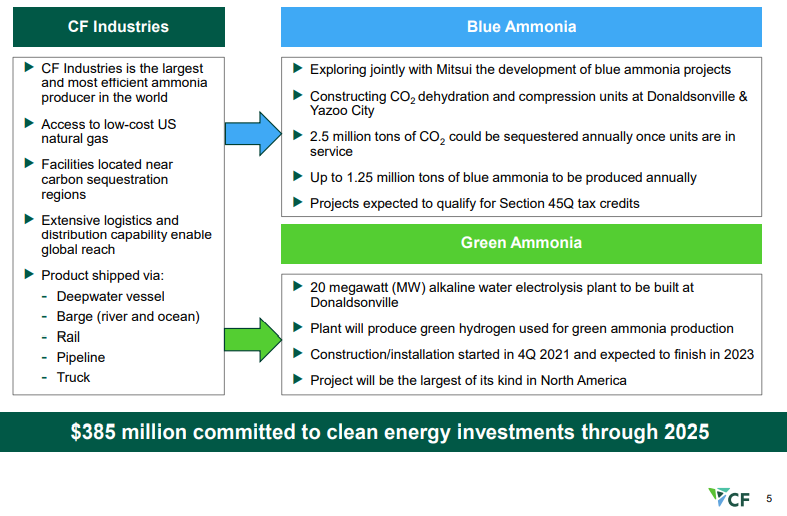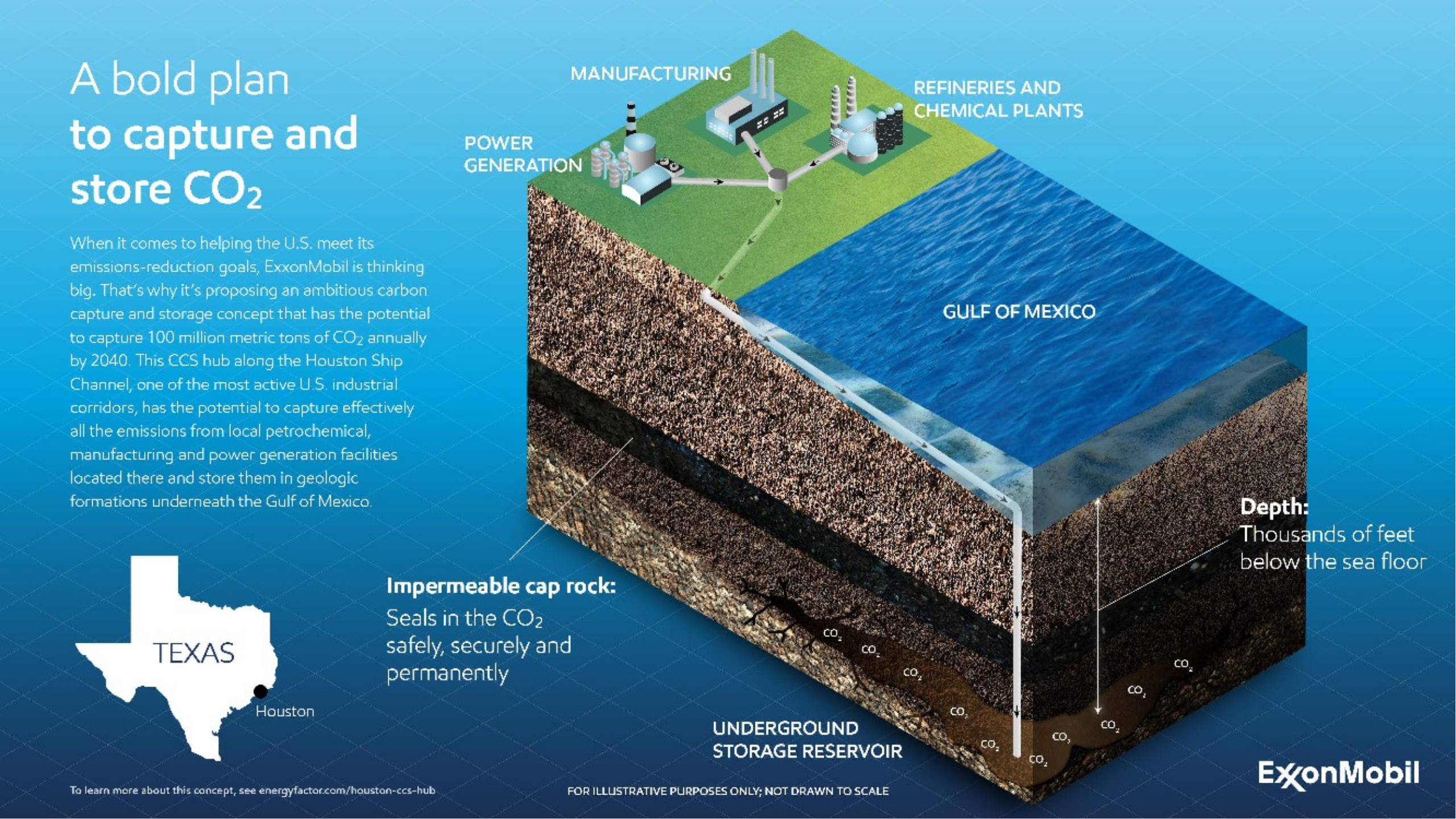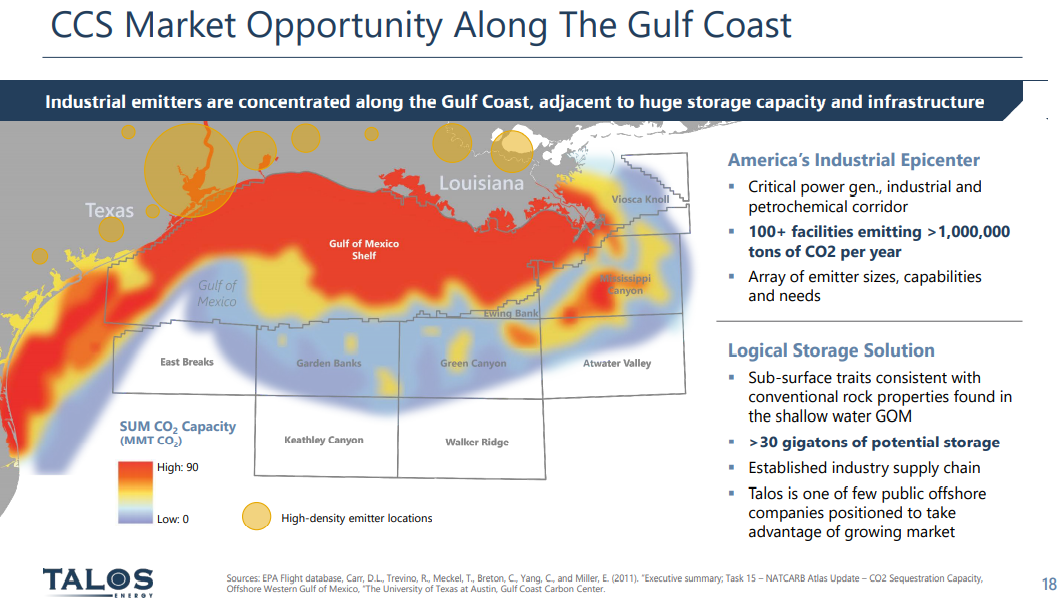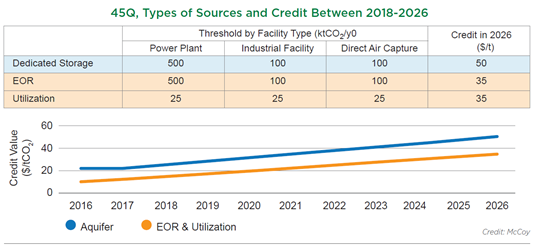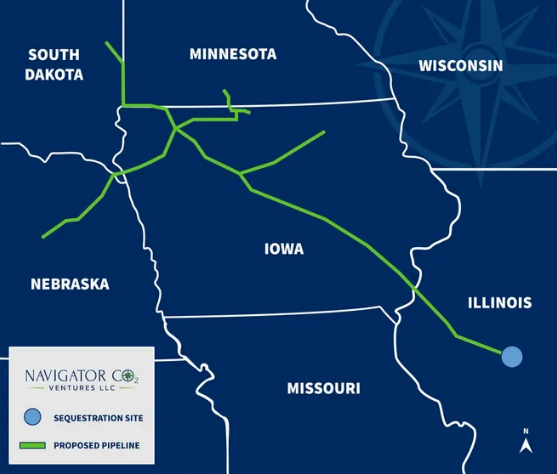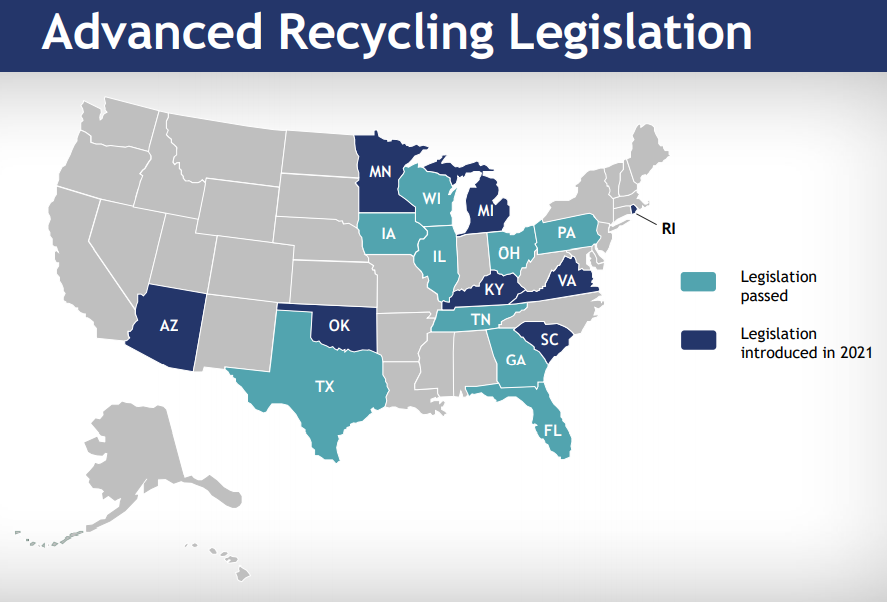We continue to believe that the US has a cost advantage in CCS versus many of the other regions of the world and that when coupled with low natural gas prices the US should be able to take a lead in developing low carbon chemicals. CF is pushing the idea of both blue ammonia in the US as well as green ammonia, and while the company has yet to announce sequestration plans for the CO2 it is working to purify – see Exhibit - once dehydrated and compressed the incremental cost of storage should be low.
Low Cost CCS Could Be A Game Changer For The US
Feb 16, 2022 1:41:38 PM / by Graham Copley posted in ESG, Hydrogen, Chemicals, Carbon Capture, Climate Change, Sustainability, Green Hydrogen, CCS, CO2, Sequestration, Ammonia, blue ammonia, CF Industries, crude oil, low carbon, green ammonia, carbon intensity, carbon market
US CCS Clusters Gaining Momentum, As They Should
Sep 17, 2021 12:32:39 PM / by Graham Copley posted in ESG, Carbon Capture, Climate Change, CCS, CO2, Sequestration, Emissions, ExxonMobil, Emission Goals
News that ExxonMobil has support for its large CCS hub in Houston should not be a surprise. According to the EPA data, for 2019, Harris and Galveston counties combined have more than 50 million tons of CO2 emissions and there are another 20 million tons in Brazoria county, which is close enough to be included. The devil will be in the details as the cost of building a high-pressure pipe network will be high, as will drilling wells with sufficient capacity offshore. We believe that this hub, or cluster (as they are called in Europe), approach will help drive CCS costs down, but we are concerned by the competitive disadvantage that this might cause for those without access to a hub or cluster – see our ESG report - Cluster F***ed: The Dangerous Scale Component of CCS – for more.
Offshore CCS Is Good: But Onshore CCS Should Be Cheaper
Aug 27, 2021 12:49:53 PM / by Graham Copley posted in ESG, Carbon Capture, Climate Change, CCS, CO2, Sequestration, carbon abatement, Offshore CCS, Talos, Onshore CCS
The Talos release and the map shown in the Exhibit below, highlight some of the potential for offshore CCS along the US Gulf Coast. We will likely see some of this developed over time, in our view, but the question of cost is important, not because the US Gulf is likely to be more expensive than some of the offshore locations that are proposed for Europe, but because the same offshore geology on the US Gulf exists onshore, and the onshore opportunities will likely be much lower cost. Given that one of the overriding concerns around carbon abatement is cost and how it will be paid for, who will pay for it ultimately, and what it means for the competitive landscape, finding the lowest cost solutions will be key. This is something that we have covered at length in our dedicated ESG and climate research. Building high-pressure pipelines is expensive, and high relative to the onshore cost of sequestration. Talos might find interest from CO2 suppliers but may be undercut by onshore projects – assuming these get the green light from regulators – not giving them the green light would likely be imposing further unnecessary costs on industry.
Fairness & A Step Change In Investment Could Come From Revised CCS Bill
Jun 25, 2021 1:01:59 PM / by Graham Copley posted in ESG, LNG, Carbon Tax, CCS, Blue Hydrogen, CO2, Sequestration, carbon abatement, US Government, 45Q carbon credits, LCFS credit, tax credit, blue ammonia
Senator Cramer’s proposed Bill to increase the value of the 45Q carbon credits for sequestration and use as well as remove the annual cap could be a game-changer in many ways. The threshold removal is necessary regardless of the credit value. In our view, the cap creates a potential competitive disadvantage for smaller companies competing with larger ones, especially in the chemical space. Should the Bill increase the tax credit enough to drive real investment in abatement but not remove the threshold we would expect to see litigation from smaller disadvantaged companies. The chart below shows the current expectations for 45Q. To date, the only real investment activity we are seeing is around sequestering CO2 from ethanol production in the US. This is because the CO2 stream is easy to separate in a fermentation process and because some of the ethanol can benefit from the much higher LCFS credit if the fuel is sold into California.
Navigator: A Pipe Dream or Pipe Nightmare?
Jun 3, 2021 9:56:39 AM / by Graham Copley posted in Carbon Capture, CO2, Sequestration, Emissions, Pipeline, carbon dioxide, ethanol, corn based ethanol
The Navigator CCS announcement is extraordinary in its boldness and potential lack of any real chance of economic success. The idea of building 1200 miles of high-pressure CO2 pipe (See exhibit below) to collect small volumes from corn-based ethanol producers and potentially have multiple sequestration sites is extremely expensive and would not begin to be covered by the 45Q tax credit, which would easily be consumed by the compression and pipeline costs alone. If some of the ethanol is making it into the LCFS markets, each ethanol producer that has some material heading that way will want a piece of the pie and if each had to jointly file with CARB, with Navigator, for what would be small portions of the overall ethanol output, the administration might be overwhelming, as would be a chain of custody process which satisfies CARB. Navigator is not an altruist fund and consequently, must see a way to make a return on the idea. This may be based on the hope that LCFS or something like it will spread to other states.
Sequestration, Hydrogen, and Another Critique of "Advanced Recycling"
Apr 1, 2021 12:04:55 PM / by Graham Copley posted in ESG, Hydrogen, Recycling, Sequestration
We discussed CCS as a possible enabler for US LNG above and we have noted a substantial increase in stories around CCS plans, projects, etc. since the beginning of the year. But what is missing in the US are actual physical plans – CCS ventures are being formed, like the Aemetis headline below, but they signal intent rather than action. Renewable fuel companies should be very interested in CCS as they can claim the 45Q tax credit for the CO2 sequestered and they can lower the carbon intensity of their fuel by doing so, resulting in a higher LCFS credit also (they are additive). The challenge for many is that the renewable fuel projects are not large and they are often not in locations that have had substantial seismic work done to identify pore spaces. There is also the additional problem of land rights and potential royalty payments – as there would be with an oil or gas find. Most of those who would like to capture carbon and are making statements like the one below have no subsurface experience and will likely need to turn to one of the oil service companies for help.


